Jan E. Bolte lives in Zurich but runs two coffee estates, Burka and Mondul, in Tanzania that produce over 1000 tons of coffee every year. Jan sat down with us in Café Henrici and gave us his perspective about the coffee business. „I think that Nespresso would roast our whole harvest in an hour,“ Jan immediately surprised us with one of his answers and he went even further regarding Nespresso and his feelings on its role on the global coffee market.
Would you like to know how it feels to produce coffee in a country that is over 6000 kilometres away from you home? Enjoy the interview with Jan.
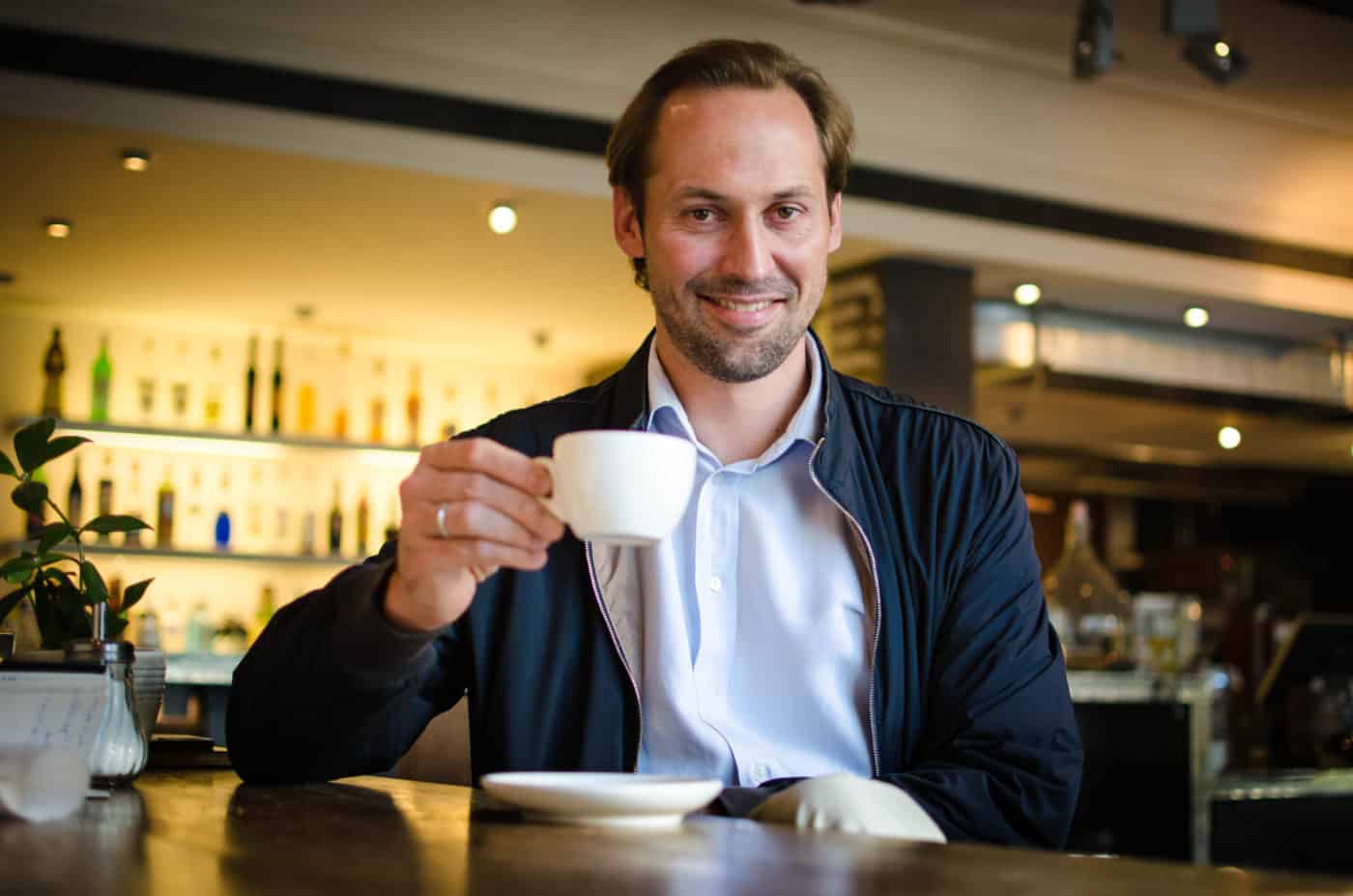
It’s the first time we have had a chance to interview a coffee producer. Tell us more about your coffee farms in Tanzania.
In Tanzania, we run two coffee estates. One, which is in the altitude between 1200 and 1400 meters, and the other one is between 1500 and 1700 metres above the sea level. The lower farm is the bigger farm, that produces, depending on the season, about 1000 tons of coffee. The higher altitude one is the one where we want to go more and more into the speciality coffee. We produce 200-300 tons of coffee there and we aim to grow it a bit in the future. On both farms we want to produce high quality coffees – really premium coffee. That’s what we do.
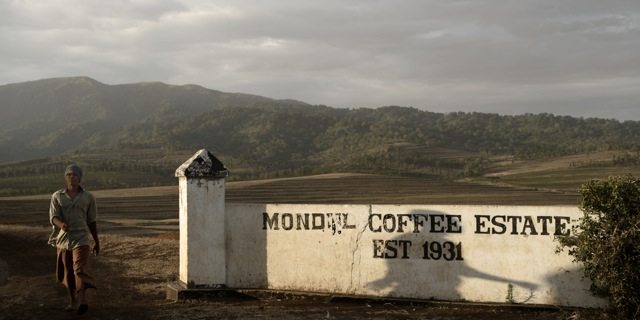
As you mentioned one farm is focusing more on the speciality coffee, what’s your motivation, as a coffee producer, to be involved with speciality coffee?
It helps the whole farm to learn how to produce better coffee, not only on the field, at the point of where we start picking coffee, how you pick it and which cherries you pick.Then you also focus on how you process it and ferment it. Do you choose wet processing, a dry one or a honey one? These kinds of things are important for the farm because it brings about overall innovation.
Are you saying that speciality coffee brings about innovation in the whole farm ecosystem?
Yeah, you just learn more about coffee and also about the consumer side – what the consumer really wants. The whole speciality industry has been developing for only a short time, it’s only say 15 years since people have started talking that way. However, most consumers still treat coffee as a commodity. They don’t care what it tastes like.
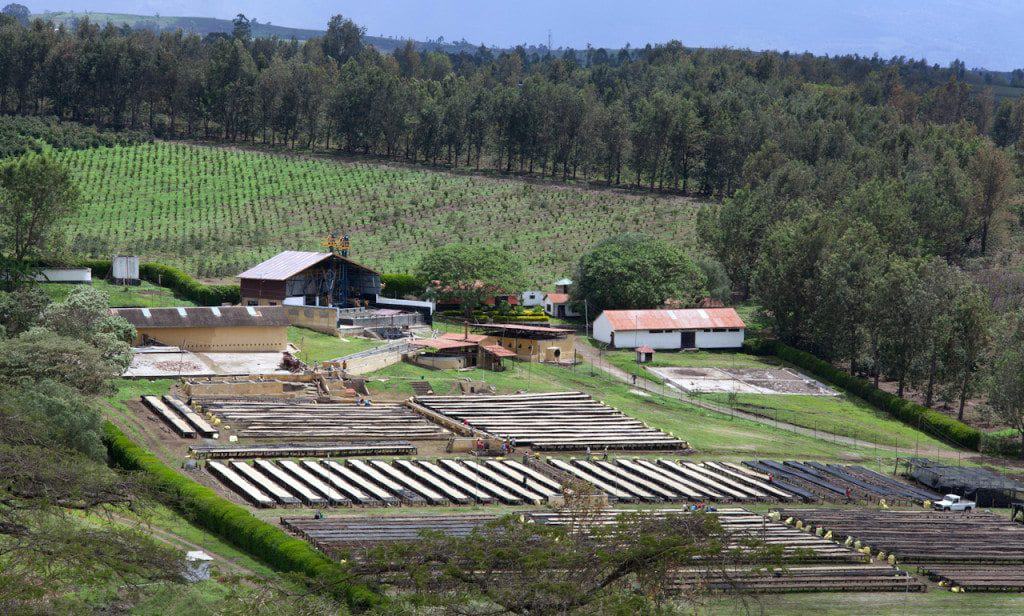
How did you actually become a coffee producer?
It’s a family business. My father was in the coffee business for his whole life and he was able to take over parts of those farms twenty years ago. That’s how it all started, and then a couple of years ago I took over.
Do you remember the first time you visited Tanzania?
The first time was more like an adventure and safari with wild animals. Still, I love to go out to the national park and enjoy its great nature. Tanzania is a very beautiful country – not only the country itself, but also the people living there.
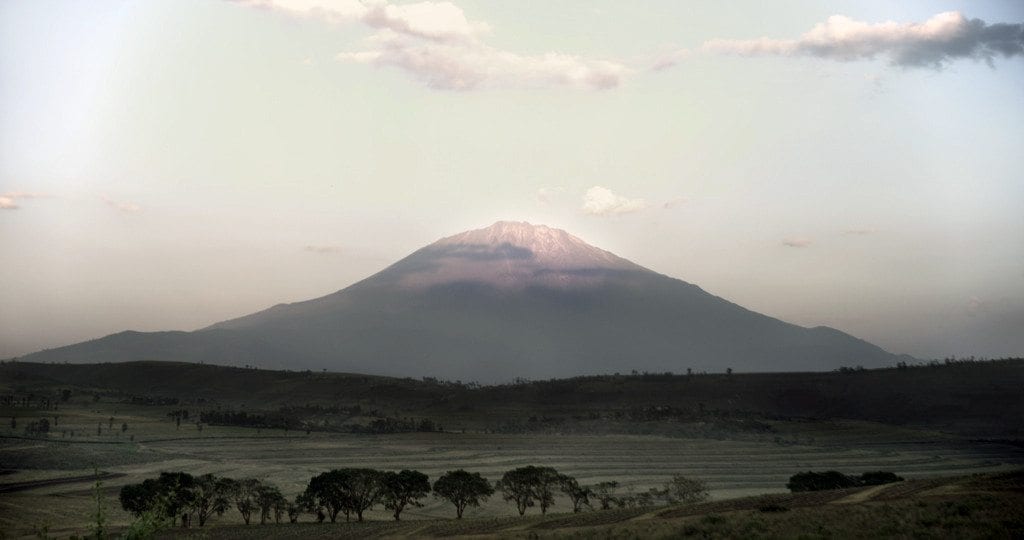
How much time do you spend there?
I go there 5 or 6 times a year which makes it about every two months. We have a general manager as well as a small management team there. I’m on Skype with them almost every day. I do all sales and customer relationship management plus the long-term strategies.
When you are in Tanzania, how do you spend your time? What is your daily agenda?
If we put both farms together it’s quite a big organisation. Obviously you have all the operational issues related to investments, developments and problematic issues that I want to look at in person. It’s really mainly meetings, farm tours, problem solving. In a sense it’s just a normal business.
How many people are there, in Tanzania, taking care of the operation of the farm?
If you mean permanent employees, there are about 50 of them in total.
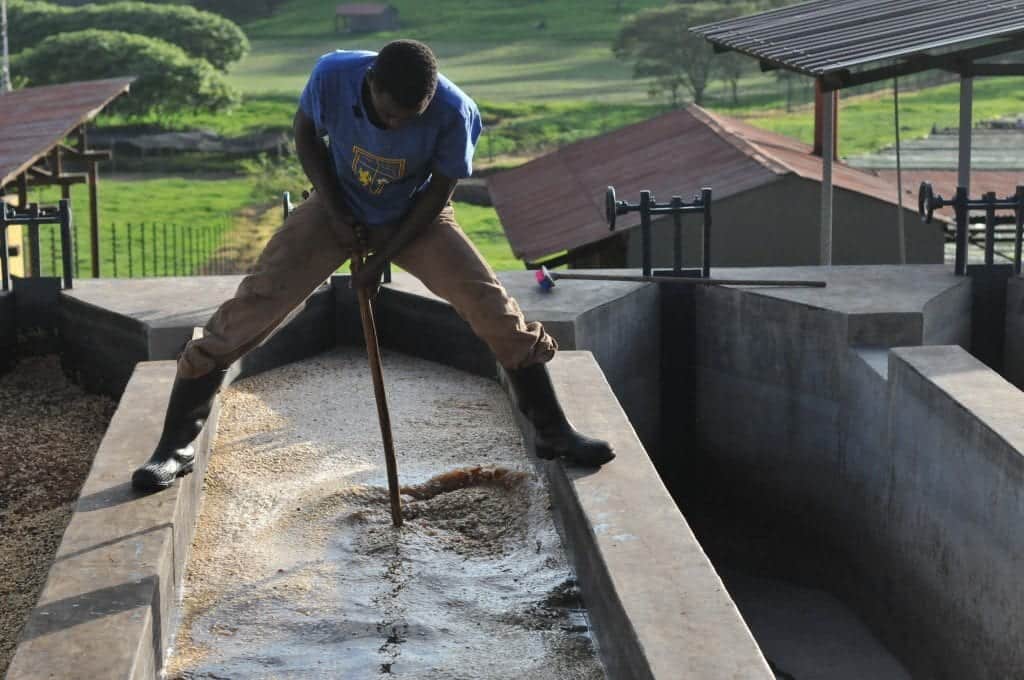
When there is a harvest I expect you are bringing in more people…?
Yes, it’s obviously in the culture of Tanzania and the whole East Africa. The coffee farming, starts in Ethiopia and runs down to all those east Africa countries, all places where coffee is a very important commodity and export good. In the harvest season we have pickers coming from different regions close to the farms. They almost come by themselves because they have been doing that for generations. At the peak of the harvest it can be around 2000 people. It’s all handmade. Interestingly, mostly the women work in Tanzania.
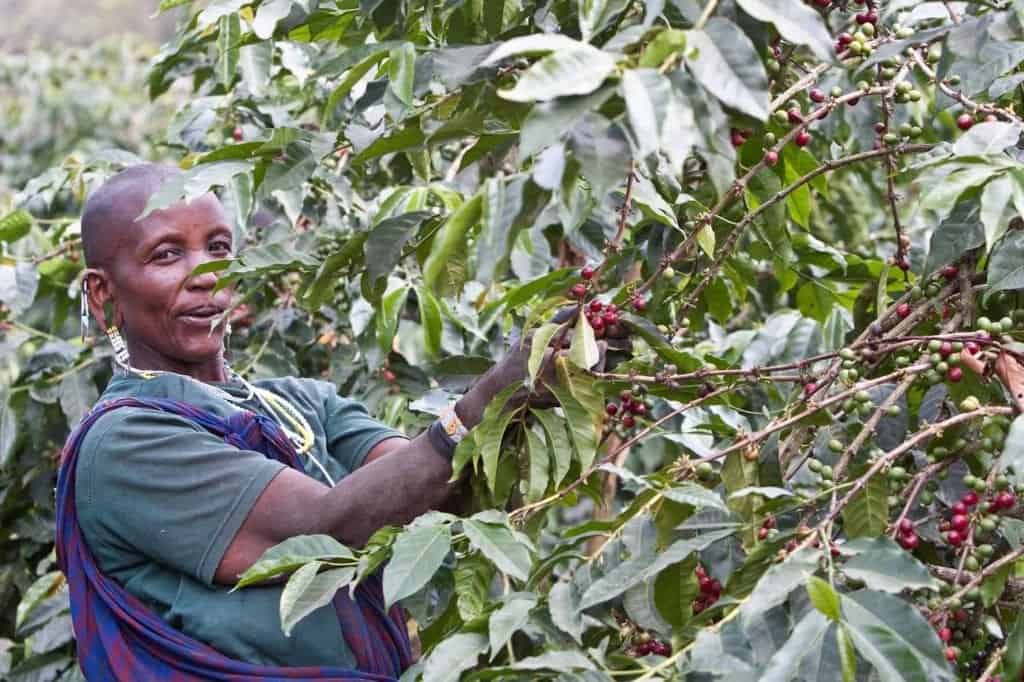
Can you compare it with Kenya, Ethiopia or other countries in the region? Is there any significant difference?
Well, Tanzania is not as developed as Kenya for example. It’s more original than the origin of Africa! If you would imagine Africa with all the stereotypes and clichés you would find that more in Tanzania than in Kenya.
Does that imply something for you? As a person who is doing business there?
If you talk about very well educated people or if you need people hired for the management positions, then you probably won’t find them in Tanzania. Not yet. They are really working on it, so the whole education system is getting better and better but in order to hire people on the certain level you’ll probably have to turn to Kenya, to find them.
Who are the people working for you then? Are they from Tanzania?
Our chief agronomist and our quality manager are both from Kenya. But we are trying to support Tanzanians to come up more and more. The middle management, they’re all Tanzanians. We feel a certain responsibility to support the local people.
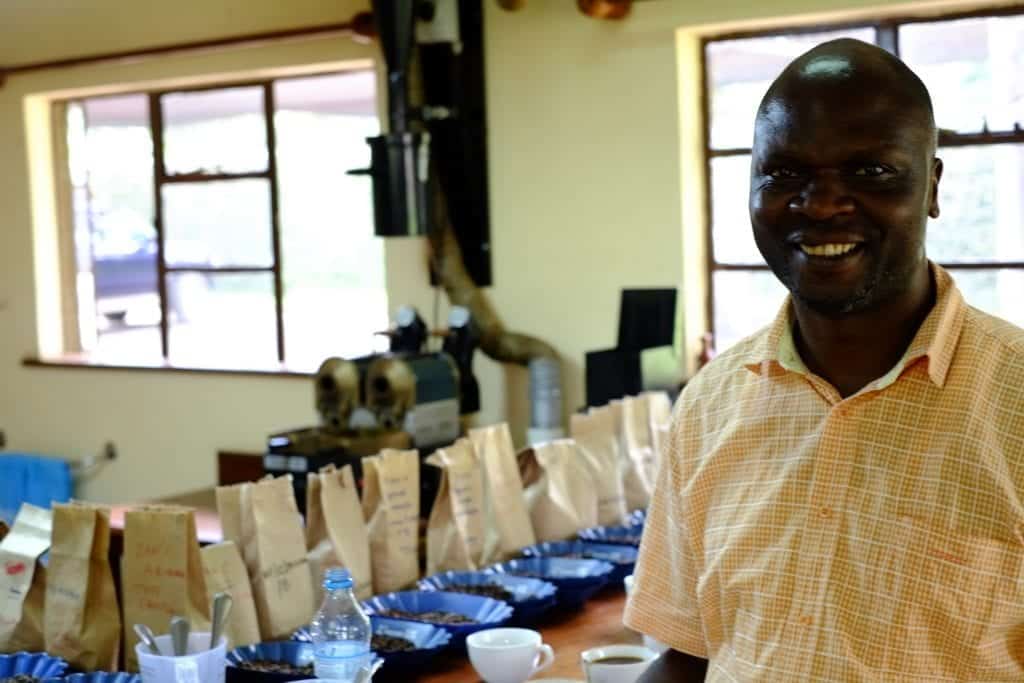
Are there any coffee rituals similar to the ones in Ethiopia. Do they actually drink coffee? I know that in South America they have coffee as a crop – something they produce and sell but not really consume.
It’s similar in Tanzania, they don’t have a big coffee culture, when it comes to drinking it. They’re only producing it.
The popular term these days is direct trade, what does it actually mean for a coffee producer in the country like Tanzania?
That’s a good question, because in Tanzania direct trade would actually work – we actually do it. I’m responsible for sales and marketing and customer relationship management, I have direct contacts to my buyers because we also have a direct export licence.
You need a special permission that allows you to export directly…
You are only allowed to export certain qualities but as we produce premium coffee most of our production is suitable for direct trade or direct export. We still use coffee traders and we want to continue doing so because it makes certain things easier.
The whole handling and logistics is in the hands of the traders because we decided to sell FOB, that’s „free on board“, that means we are only responsible for the coffee until it‘s on the ship. We’re not responsible for the coffee to arrive with the customer. As soon as it’s on the ship, my business is done.
So who are your customers at the moment?
Starbucks, Illy Café and a lot of Japanese buyers.
And how does it actually work? How does business development work in the coffee world?
With the big brands we have long term relationships and long term agreements. They have to make sure they get the same quality coffee year after year and it would be difficult for them to always change suppliers. So they look for partners they can trust to continuously produce good coffee. This is our main source of income.
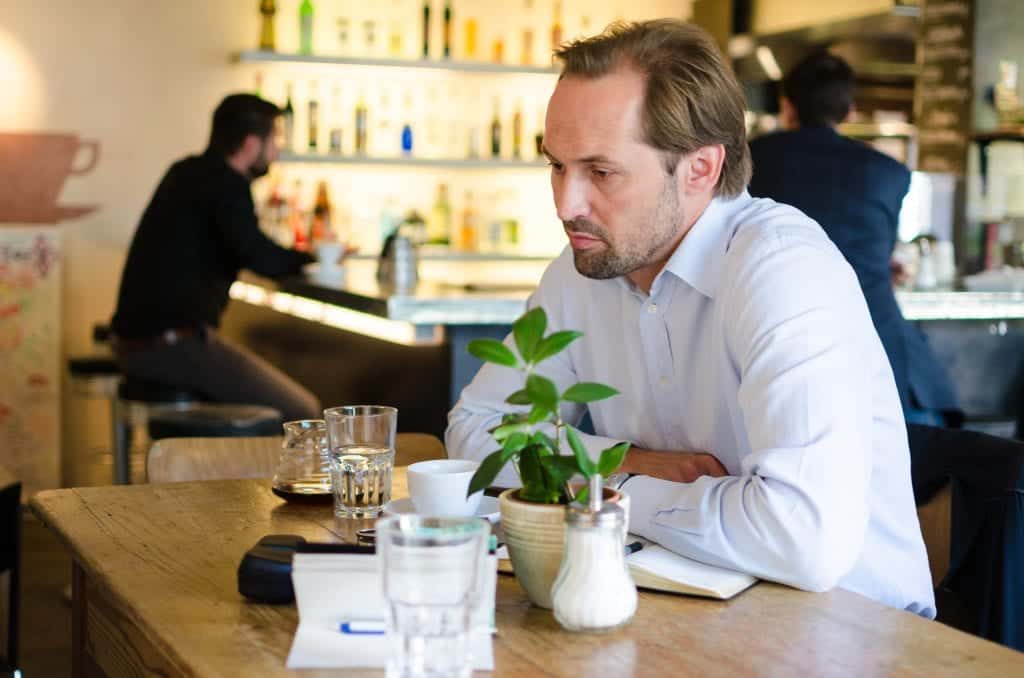
I know you work closely with Shem Leupin from Stoll Café in order to produce the highest quality coffee. Could you share more about this cooperation?
Working with Shem helps us a lot in understanding what we have to do in order to produce a speciality lot. He has a big know-how in coffee, not necessarily on the production side but in the roasting and coffee brewing side. Together, we are trying to produce a coffee that will be able to score over 90 points, a serious kind of speciality coffee.
With a goal of over 90 points, you are aiming for the Cup Of Excellence level of coffee then.
Yes, that’s a good point. The Cup Of Excellence unfortunately doesn’t exist yet in Tanzania. It exists in the surrounding countries like Burundi and Rwanda but not here. I think that Tanzania is a bit disorganized and nobody took the initiative, on a government level, to actually introduce it there.
What kind of trends do you observe in the coffee world from the perspective of the coffee producer?
If you look at the global production of coffee, you see that the biggest part of the whole massive coffee market is just commodity coffee. I can‘t say the exact percentage by heart but let’s say 95%. What we are talking about here (speciality coffee) is just the top 5% of the pyramid then. That’s already a quite a large amount of coffee though. Perhaps if the consumer gets more aware of what kind of product coffee actually is, then we can go beyond 5%.
So it’s basically about demand for better coffee and the willingness to pay for it so coffee producers can justify investing in it?
It must be the demand. I’m sure it must be. It brings a certain risk to the speciality coffee too. The risk of people losing their interest in it and leaving it only for a couple of „freaks“. Or it could go the other way around and we’ll get to the certain point, where coffee is treated like wine. And there are similarities, at least on the field. On the field, there are definitely a lot of similarities between wine, between vineyards and coffee farms.
Considering that wine is grown, harvested and produced in the same place, coffee is different or more difficult product from a logistical point of view, right?
The biggest difference is also the most important one – you have very different professional steps in producing top coffee compared to top wine. Up to green coffee and up to the cherry, the grapes in the tanks of chateau and bordeaux, it’s all very similar, but then you can put it into a bottle and that is it. You have wine. In contrast, it’s a similar phase when the whole process starts moving with coffee. Suddenly roasters come in and they are experts in roasting, and then the baristas come in, they are experts in extracting coffee. There is a part of the value chain that is totally different than what we can see with wine.
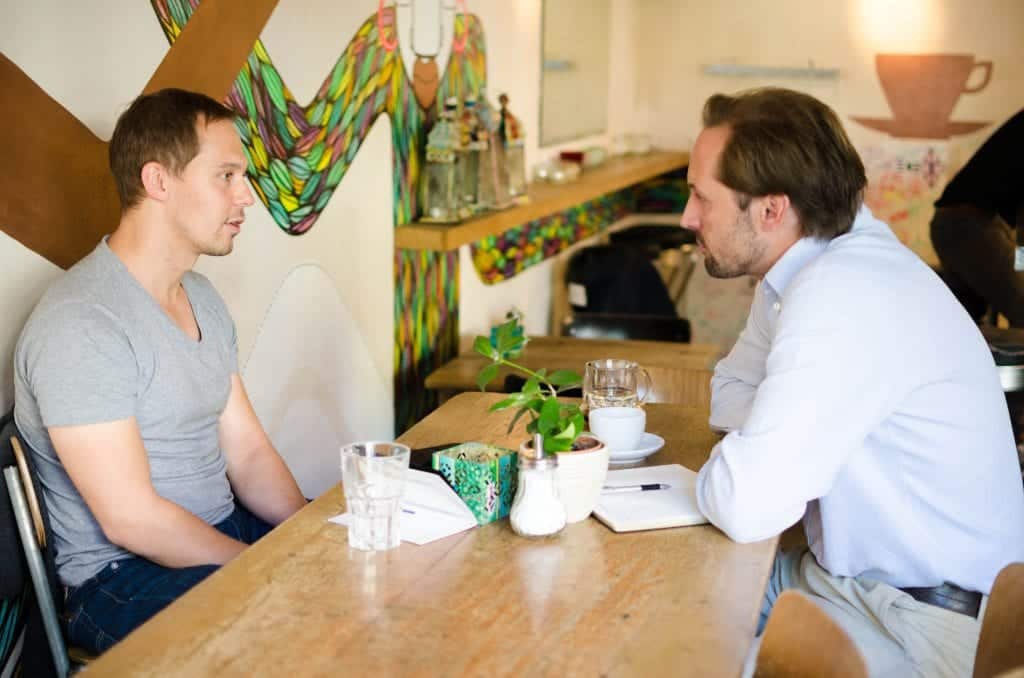
On the other hand, both coffee and wine, are amazingly complex natural products and we can do still a lot together and learn from each other. We have coffee terroir which produce differently tasting coffees. Eastern African coffee tastes different than Central American coffee, and more and more people will realize these differences and will eventually develop their own taste preference. Similarly to preferring Italian wine over French wine, they could prefer coffee from Ethiopia over coffee grown, in say, Guatemala.
So what kind of coffee do you drink during the day? How do you prepare it?
Nespresso! No, no, no… well, we have shared office, so we have a Nespresso machine there, it’s convenient, you know… I typically use some kind of drip, I like chemex. I have a proper espresso machine at home.
Do you brew your own coffee from Tanzania?
Sometimes I do but I use different kinds of coffees too.
You mentioned Nespresso and that is definitely the Swiss culture thing, right? The convenient Nespresso machine is everywhere – at homes and in the offices.
I think it’s very difficult for people to get around it because your goal has to be making really high-level coffee if you want to avoid Nespresso. If you don’t care, it’s just more practical for an office or home. We are still a small community, the community that wants to drink proper coffee and honestly, Nespresso is not part of it.

But if you look at convenience – always the same taste, it’s quick and easy to make, then it’s definitely a perfect product and it has shown it by the success on the market. Moreover they know what they do, I mean, they know all about coffee. It’s what we were talking about – a totally different level of quality.
Are they also your customers? Do they buy any coffee from you?
No, they are way too big, or we are way too small for them.
You mentioned Starbucks for example, they are bigger than Starbucks?
Starbucks does special reserve coffees, that’s where we come in. Starbucks is also much smaller then Nespresso, you cannot even compare. I think Nespresso would roast our whole harvest in an hour.
I have a sense that to be in the coffee business, you need to have a passion and patience, and be somehow in love in with coffee. So what is it? What are the elements that make you excited to work everyday in a coffee business and try to improve it?
I think it is a special world. It’s a huge commodity, as you know, the second biggest by volume but it’s still a small world. It’s interesting how the whole coffee world is actually managed by a few people. The motivating part is that it is a fascinating agricultural product that comes from exotic countries. Then it excites me that you have all these different tastes, the ways it’s brewed and then consumed … that’s very complex field on its own.

